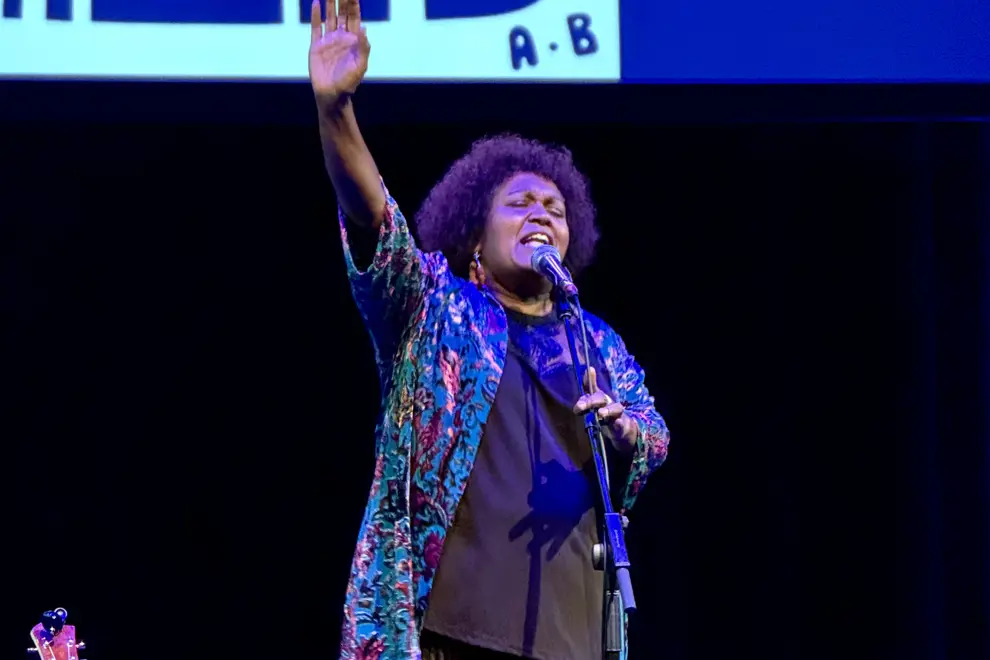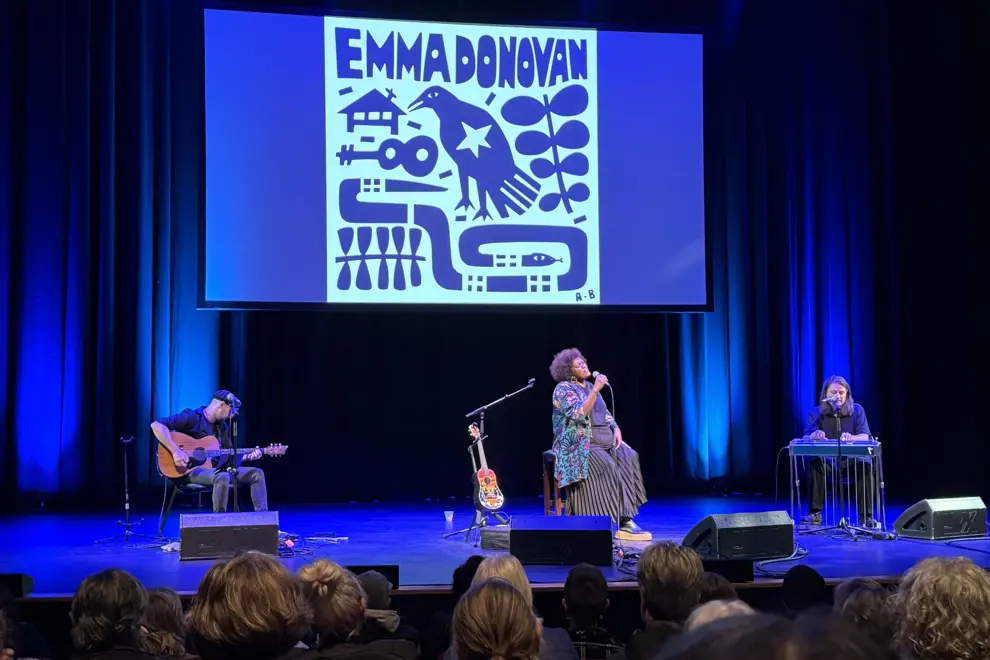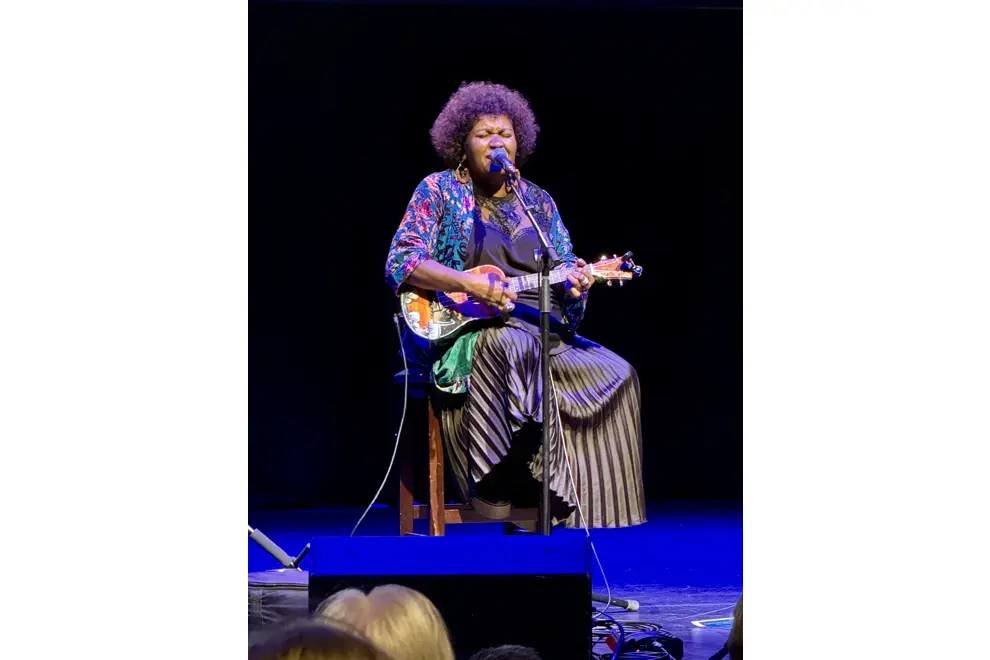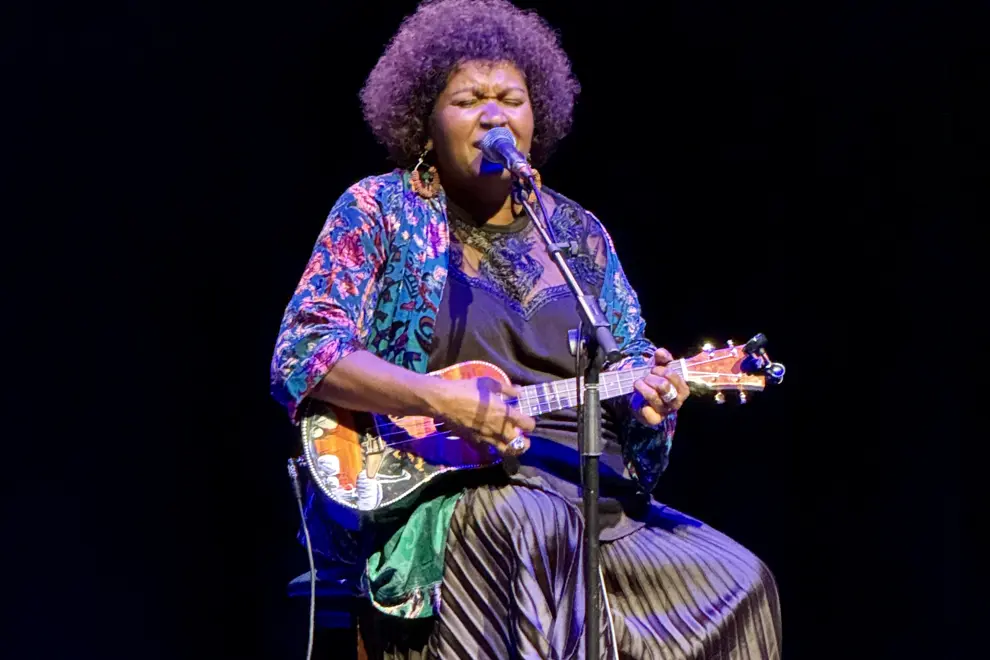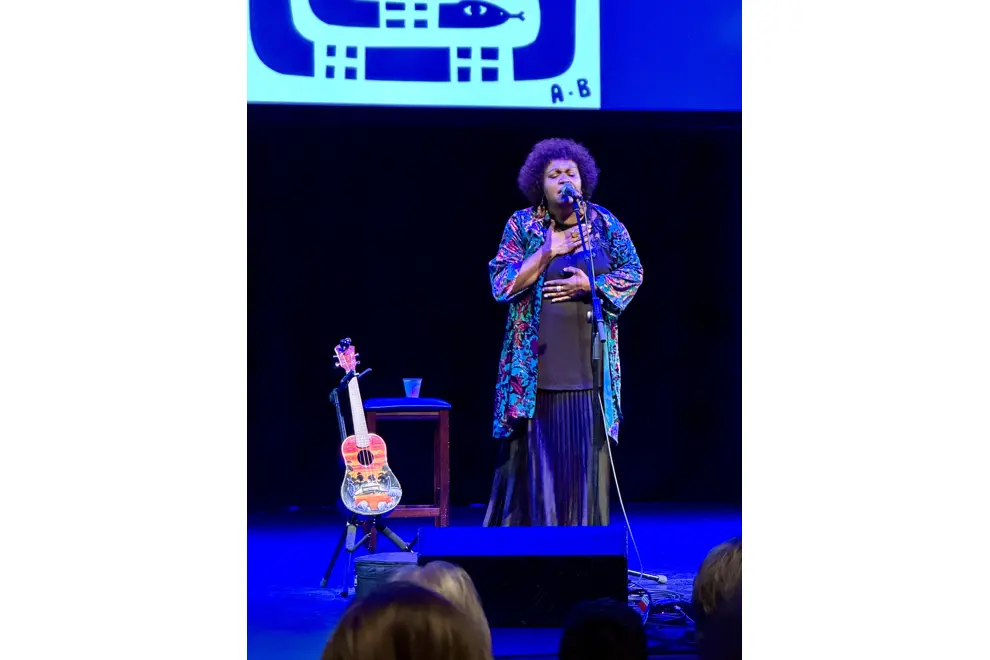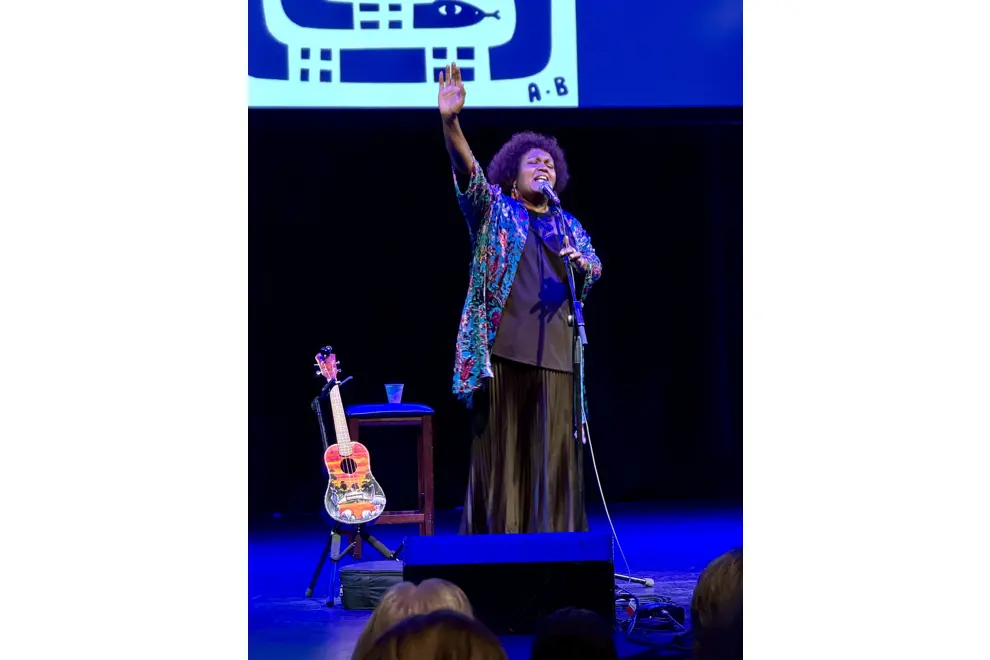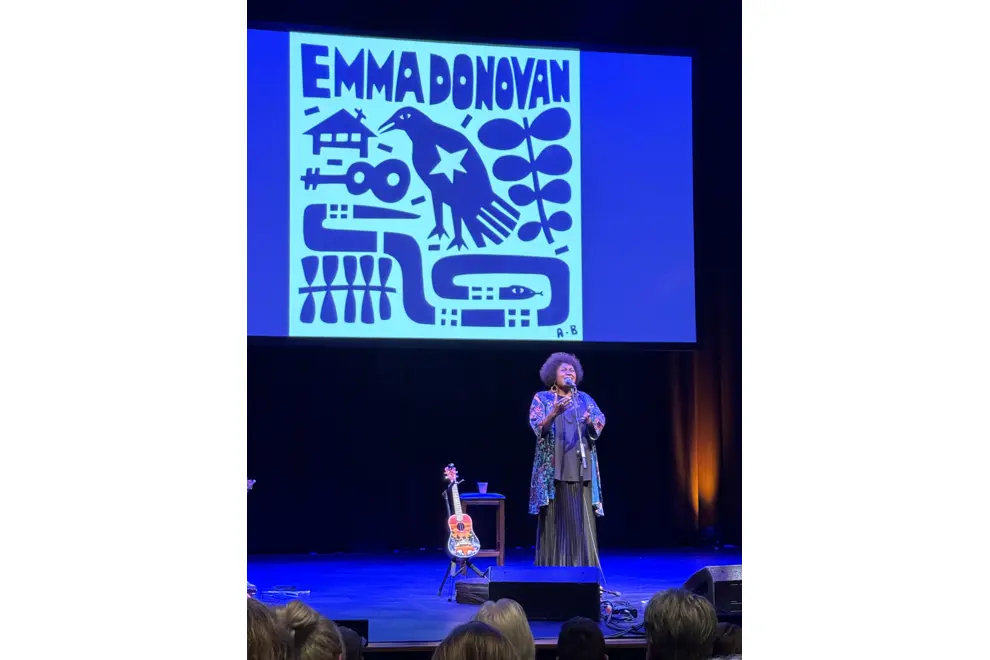After almost a decade spent fronting the multi-award-winning soul-funk outfit The Putbacks, Emma Donovan takes the Frankston Arts Centre stage without her usual backing band/safety net. A proud Gumbaynggirr and Yamatji woman, Donovan takes a few seconds to breathe through her nerves and then quickly endears us to her further thanks to easy onstage banter and regular radiant smiles.
Our eyes are immediately drawn to the projected backdrop showcasing custom artwork by Aretha Brown, who also designed the album cover for Under These Streets by Emma Donovan & The Putbacks). Later on, Donovan reveals the significance of each item depicted, including a crow (the totem animal from her father's ancestral lands), a snake (representing her mum), a guitar and some eucalypt mixed with she-oak. She also shyly informs us that this design is available on tote bags at the merch stand.
We’re assembled here to celebrate Donovan’s recently released solo record, Til My Song Is Done. This evening, she’s accompanied by David Tweedie (guitar) and James Gilligan (pedal steel guitar, aka ‘the Sad Machine’), who supply winning harmonies throughout. Gilligan – who previously played alongside Donovan in The Black Arm Band – points out that ‘Tweedy and Gilligan’ sounds “like a cartoon”, and he’s not wrong.
Donovan reveals she wrote “gooey love song” Bringing All The Lovin’ about her man. Then, following another love song, Shine On You, Donovan admits she’s having a teary moment reflecting on how their love blossomed from friendship. Many more tears – hers and ours – will be mopped up throughout this show.
Don't miss a beat with our FREE daily newsletter
Between stories of her mob and lost loved ones, Donovan honours her family’s “country gospel” musical legacy. She’s descended from a long line of musicians and sang as a child with The Donovans, alongside her mother Agnes and five uncles. Donovan tells us this renowned family country band – founded by her nan and pop, Micko and Aileen Donovan – would often perform at barn dances to fundraise for needy members of the community. Every time they played, she would be watching and listening with “big ears”, Donovan shares, laughing heartily.
Donovan picks up a hand-painted ukulele. Regarding the instrument, she reveals the outback sunset scene featuring a kangaroo and an emu, which is her cousin’s work. She then launches into Yibaanga Gangaa (Sweet By & By), a tribute to her nan and pop that’s mostly sung in the Gumbaynggirr language. To present Miracle Man, a song her grandfather wrote in 1972, Donovan rises to her feet for a sway. This Memory Lane trip makes her emotional again: “I swear, I’m getting so sooky! Can’t hold it in; I don’t know why.”
Her mother, Agnes, died of cancer while Donovan was pregnant with her second daughter, and she is remembered with great fondness throughout the course of tonight’s show. We’re told Agnes was “like one of them Dance Moms”, lovingly sewing and sequinning “little cowboy outfits” for her daughter to wear while competing in Tamworth talent quests (see Til My Song Is Done’s back cover). “Mum used to call me her little black Tammy,” Donovan recalls, beaming with pride, before taking on Your Good Girl’s Gonna Go Bad by Tammy Wynette – just one of the somewhat inappropriate songs she’d regularly perform as a youngster.
While introducing Liquid Gold—a song she wrote for her dad—Donovan transports us to the traditional land of the Yamatji people (what is now known as Western Australia), where kangaroo meat has a distinctive flavour and emu fat turns into “liquid gold” (bush medicine).
Following a short interval, Donovan opens Act Two with her latest album’s title track, which reflects her lifelong commitment to singing up for long-overdue positive change: “No rest ‘til this voice is heard… Until the day that we see change/ Then I’ll keep singing my people’s pain…”
Her version of Down City Streets, the Ruby Hunter-penned Archie Roach song, coaxes audience members to their feet, applauding wildly. “We’ve gotta keep singing his songs, aye?” Donovan humbly acknowledges.
She then channels Liz Stringer, singing both parts of their powerful duet Change Is Coming – yet another Til My Song Is Done highlight.
Even more audience members are upstanding following her impassioned, a cappella rendition of a Frances Rings-penned tune. Donovan recalls she was “about 16” when she first saw Christine Anu performing this song.
To close, Donovan draws inspiration from both Roger Knox and Aretha Franklin’s versions of Bridge Over Troubled Water. Donovan’s closing sustained note is vulnerable yet powerful, like she’s drawing strength from her ancestors. We all collectively get something in our eye while remembering our own dearly departed ancestors and mates. The audience hollers and palm-hurting applause say it all.
Donovan’s once-in-a-generation voice takes centre stage in this trio mode, which is precisely where it belongs. Her storytelling ability is undeniable. And the rich historical detail and language knowledge she’s able to impart while yarning between songs during solo shows allows Donovan to connect on a deeper level.
Future spins of Donovan’s songs will be enriched following this life-affirming gig experience. She’s such an exceptional talent and is only just starting to unleash her full solo potential. Never forced or preachy – much like Uncle Archie before her – Donovan’s spirit truly shines on stage.

